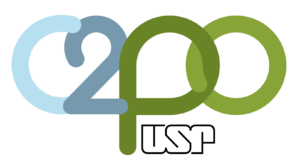Between September 15 and 19, 2025, fifteen researchers from South American countries had the opportunity to experience an immersion in the laboratories of the Center for Translational Research in Oncology (CTO), at the São Paulo State Cancer Institute (ICESP), during the Course on Extracellular Vesicles in Oncology: A Systems Biology Approach (CABBIO-CNPq BR14 Course).
The first day featured the International Symposium: Extracellular Vesicles in Cancer Biology, a hybrid-format event offered to the 15 participants attending in person and to another 100 participants who registered to follow the online broadcast.
In the following days, the fifteen participants attended theoretical classes and hands-on training covering different stages of research involving Extracellular Vesicles in the context of tumor development. The practical content included vesicle isolation, protein detection, quantification, size measurement, RNA extraction, vesicle uptake in culture, data processing, and vesicle engineering as a therapeutic strategy for cancer treatment. On the afternoon of the last day, a closing gathering took place.
The course featured presentations from distinguished researchers in the field: Prof. Dr. Roger Chammas (FMUSP/ICESP/C2PO, Brazil); Dr. Luciana Nogueira de Sousa Andrade (ICESP/C2PO, Brazil); Dr. David Lyden (Weill Cornell Medical College, USA); Prof. Dr. Juan Pablo Tosar (UdelaR/Institut Pasteur de Montevideo, Uruguay); Dr. Virginia Novaro (IBYME-CONICET, Argentina); Dr. Adriana Paes Leme (CNPEM, Brazil); Dr. Andreia Hanada Otake (ICESP/C2PO, Brazil); Dr. Renata Saito (ICESP/C2PO, Brazil); Dr. Alexis Murillo (ICESP/C2PO, Brazil).
The course was selected under the call for short-term biotechnology courses supported by the Latin American Center for Biotechnology (CABBIO), a program of regional technical-scientific integration coordinated by Brazil’s Ministry of Science, Technology and Innovation (MCTI), in partnership with governmental agencies from Argentina, Uruguay, and Colombia. The initiative was organized through a partnership between CABBIO and ICESP, with support from C2PO and the Student Network on Extracellular Vesicles (SNEV), part of the International Society for Extracellular Vesicles (ISEV).


Check out participants’ testimonials:
Adrian Otero, 29 years old, Argentina
The course was incredible. I thought the dynamics, combining theory and practice, were perfect for expanding my knowledge of extracellular vesicles in oncology. Excellent group of professors and technicians.
Cristina Angélica Weber, 26 years old, Argentina
The course was a unique opportunity, representing a starting point to continue studies on extracellular vesicles in Argentina. Being able to talk with experts was a great honor. All the professors were excellent, the organization was very good, and the experience exceeded my expectations. I am deeply grateful for such a special opportunity, and I hope one day I can return and work with this team and this laboratory.
Diana Carolina Parra Chávez, 42 years old, Colombia
My experience in the course was excellent. I was able to learn many techniques, clarify doubts, network, and receive suggestions from experts in the field for the development of my project. I am very grateful for the opportunity and the knowledge gained.
Erika Natalia Durán Cruz, 36 years old, Colombia
Participating in the Course on Extracellular Vesicles was an extremely enriching experience. The theoretical and practical classes provided a comprehensive and updated view of the subject, making a significant contribution to my academic and professional training. I am grateful for the opportunity and for the excellent organization of the course.
John Oluwafemi Teibo, 32 years old, Nigeria/Brazil
The CABBIO BR 14 course on Extracellular Vesicles in Oncology gave me an introduction into the EV field and society. Its rich content laid the foundation for knowledge, discussion, and the practical experience of EV isolation, characterization, and functional assays being applicable in cancer research. Thanks so much to the organizers, ICESP, C2PO, SNEV, and CABBIO for putting together the maiden edition of this course to build early career researchers in the EV field of Latin America.
Pedro Mikael da Silva Costa, 31 years old, Brazil
Participating in the Course on Extracellular Vesicles in Oncology at CTO-ICESP was important to broaden my understanding of the relevance of these structures in cell communication processes, highlighting their wide range of applications for cancer diagnosis, prognosis, treatment, and prevention. For me, the course also reinforces the importance of promoting research on extracellular vesicles in the North and Northeast regions of Brazil, strengthening scientific and technological production in cancer care.
Sabina Beganovic, 26 years old, Brasil
Participating in the Course on Extracellular Vesicles in Oncology at CTO-ICESP was important to broaden my understanding of the relevance of these structures in cell communication processes, highlighting their wide range of applications for cancer diagnosis, prognosis, treatment, and prevention. For me, the course also reinforces the importance of promoting research on extracellular vesicles in the North and Northeast regions of Brazil, strengthening scientific and technological production in cancer care.
Suzana Lemke Lanius, 26 years old, Brazil
The course provided a deep theoretical and practical immersion in various methodologies, which will be of great relevance for the development of my research project and future investigations.
Moreover, the course fostered a favorable environment for networking, enabling interaction with researchers from different parts of the world working in the field of extracellular vesicles. This experience not only enriched my knowledge but also resulted in the building of new partnerships and friendships.




